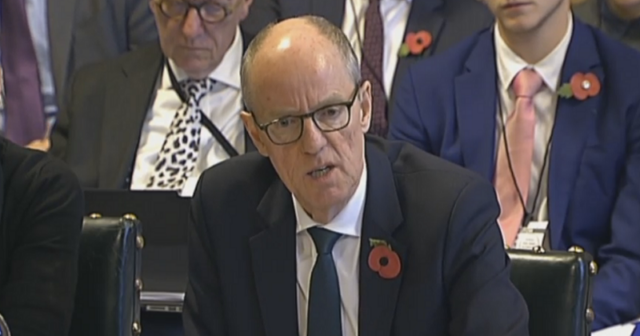Justine Greening failed to mention grammar schools in her speech today, given as the schools minister was grilled on the issue in the Commons, but she revealed that the government doesn’t know which school interventions are “value for money”.
The education secretary (pictured above) ignored the topic of grammar schools during her speech at an event in London to celebrate the Education Endowment Foundation’s (EEF) fifth anniversary.
Earlier in the day, schools minister Nick Gibb gave evidence to MPs on the education select committee as part of the scrutiny process for the government’s consultation on re-introducing selective schools, and later faced a debate in the Commons on the same topic.
But Greening chose to avoid the issue at the event held by EEF – who are funded by the Department for Education (DfE) to deliver evidence-based research of what does and does not work in schools.

In the speech, she said that she wanted to put “value for money at the heart” of what the DfE does, but admitted the department doesn’t know which areas of education are best to invest in.
“A simple question that I always want to answer is if I had one more pound, where should it go? Right now I don’t have a sufficiently broad evidence base to answer that question.”
She added: “The data we have could be much much better. We need to have a much more careful look at how we can embed evidence into the core of how the department works more broadly on a day-to-day basis and how actually, dare I say, we can embed it more into a business-based approach for my department in terms of where we put our chips and where we follow the evidence of what works.”
Over the last five years the EEF has received £75 million funding from the DfE and run 127 different school research projects.
Recent “value for money” studies include the Parent Engagement Project, which found texting parents about upcoming tests and homework deadlines can boost secondary school pupils’ maths results by an extra month of learning.
At a cost of £6 per year per pupils, the EEF suggested it was a “straightforward and cost effective” way of improving performance.
Greening said there was “a lot of good” programmes run by the EEF that she wants to roll out in her “opportunity areas”.
The education secretary announced in October during the Conservative party conference that £60 million will be spent on school improvement, teacher support and other schemes in six social mobility ‘coldspots’ – Blackpool, Derby, Norwich, Oldham, Scarborough, and West Somerset.
Greening today said she wanted to roll out some of EEF’s projects in those areas if the research suggested it would make a difference.
“The role of embedding research in opportunity areas is something we are really keen to do. Many of those disadvantaged places haven’t changed over years and we know they won’t change overnight, but what we can start to do is unpick the problems and bare down on those problems.
“I’m looking at how we can get a whole roster of people who want to work with us then we can reach out to the right areas with right projects.”
Save







It is not up to Greening or any other SoS to decide what school interventions are ‘value for money’. If autonomy means anything at all it means leaving that decision to individual schools.
Perhaps someone should have briefed Greening about the EEF Toolkit before she told the EEF she had no idea about what interventions work. The EEF could be forgiven in thinking their work is being ignored or, as in the recent misuse of the EEF trial of project-based learning, it is cherry-picked to confirm ministerial prejudice. http://www.localschoolsnetwork.org.uk/2016/11/project-based-learning-that-works-schools-ministers-should-take-note
Surely the best way to find out is to ask those who do research on education, such ad UCL’s Institute of Education! It is quite straight forward.